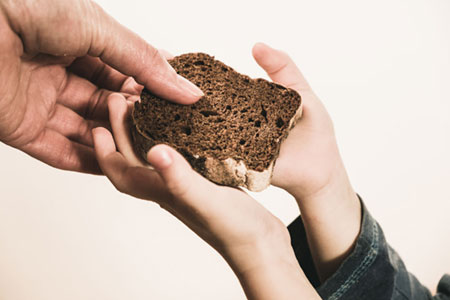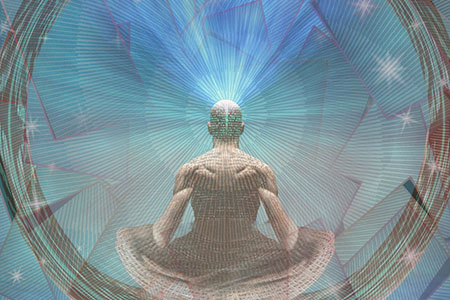christianity
The Spiritual Symbolism Of The Pelican
 When a bird flies directly onto your path, or you see images or photos of the same bird repeatedly, within a relatively short space of time, this is often a spiritual sign that the energy of this bird is calling or guiding you.
When a bird flies directly onto your path, or you see images or photos of the same bird repeatedly, within a relatively short space of time, this is often a spiritual sign that the energy of this bird is calling or guiding you.
I live on the coast and I am lucky to be able to watch various seabirds, and encounter other birds drawn to the local water ways. The pelican is one bird that has specifically caught my attention. The day I was inspired to paint this amazing bird, he literally strutted down the hallway of my home!
Even to this day, pelican continues to literally soar into my experience whenever I need to draw on his wisdom. Even though they seem large and clumsy, there is something gentle and caring about their nature. If pelican has waddled or soared onto your path, let his wisdom and symbolism guide your way.
I started building my connection with the pelican’s energy by observing and sketching the local birds. Through the process I found a sense of awe for the pelican’s beauty, which was a shift in my perception, as I had never before considered them to be very attractive birds.
I also noticed they followed a set routine, and similar flight paths, depending on the weather. It inspired me to become more aware of my own patterns and habits. At this time my work schedule had become somewhat unbalanced and dysfunctional, without me being aware of the impact. Pelican taught me that it is vital for my self-care to ensure that I work within a routine and structure that better supports my creative outlets and energy levels.
Love Is The Healing Force
 I grew up in a Christian family. In fact, it was going to seminary, and exploring world religions, that eventually led me to practice metaphysics and intuitive consulting as a full-time profession. Being trained and ordained in a Christian organization has also given me a unique perspective on alternative spirituality and metaphysics.
I grew up in a Christian family. In fact, it was going to seminary, and exploring world religions, that eventually led me to practice metaphysics and intuitive consulting as a full-time profession. Being trained and ordained in a Christian organization has also given me a unique perspective on alternative spirituality and metaphysics.
Jesus is, in fact, one of the spiritual guides I connect with when I work with people. This has made me realize that Jesus, the central figure in Christianity, is often misunderstood by many people. In the many years of connecting with Jesus, I am confident that he never had the intention to create a formal, organized religion. In fact, often the religious attributes attached to Jesus are far more complex than his original core message.
Jesus taught very simple strategies for life. I think sometimes these strategies are considered too simple by some people. When asked, Jesus was able to sum up his teachings in three simple statements. Someone inquired about an authentic spiritual path and Jesus gave two commandments and then gave a third statement, “In these two commandments rest all of the law and the prophets.”
This third statement is quite profound. He was stating that every spiritual text that had ever been written, or would ever be written, could be summed up in two commandments. This means that in Jesus’ perspective, if a person simply abided by these two commandments, they would be fulfilling the fundamental guidelines associated with religious and spiritual practice.
If you are interested in Jesus’ teachings, or interested in following the path he taught, then the good news is that you are already following the second ‘commandment.’ I have been living on this planet long enough to recognize that every person is already following this second commandment, which says, “Love your neighbor as yourself.”
The Laying On Of Hands
 The laying on of hands, also known as the imposition of hands, is a ritual act performed in some religious and spiritual traditions. It is used for the purpose of ordination, healing, or the transmission of a spiritual gift or blessing. In this blog article I will explore the different traditions and how they use this ancient practice in diverse ways, with a special focus on healing.
The laying on of hands, also known as the imposition of hands, is a ritual act performed in some religious and spiritual traditions. It is used for the purpose of ordination, healing, or the transmission of a spiritual gift or blessing. In this blog article I will explore the different traditions and how they use this ancient practice in diverse ways, with a special focus on healing.
Judaism
The hands are of particular importance in certain Jewish religious rituals. Deuteronomy 34:9 describes, for example, how Moses laid hands on Joshua, his successor. The term used for it is semicha, meaning ‘leaning of the hands.’
It is also associated with sacrifice. Thousands of years ago, priests practiced semicha by laying hands on the sacrifices right before offering was made. Moses tells Aaron, “This is the thing that God commanded you to do, that God’s presence may appear.” It is understood that this passage in Leviticus 9 refers to the laying on of hands.
Christianity
In the New Testament we find a continuation of the Jewish practice of semicha, still connected to the liturgies of ordination and now also of baptism, in both of which the imposition of hands is an important part of the ritual.
Ordination involves conveying a gift and an authority within the Church. The imposition of hands connected with baptism is a means whereby the convert is born to the ecclesia, or the Christian community. The action itself of laying on hands is connected with the gift of the Holy Spirit and is also used to convey a blessing. For example, in Acts 6:6: “These they set before the apostles, and they prayed and laid their hands on them.” It is also practiced as a means of healing (Luke 4:40).
How To Be A Clear Channel
 It is said that we are spiritual beings having a physical or human journey. I often also hear people say that some people are ‘more spiritual’ than others. I cringe whenever I hear such things, because we all come from the same Source, which means that there is no differentiation between any of us.
It is said that we are spiritual beings having a physical or human journey. I often also hear people say that some people are ‘more spiritual’ than others. I cringe whenever I hear such things, because we all come from the same Source, which means that there is no differentiation between any of us.
In fact, in nearly every spiritual tradition the term ‘spiritual’ is derived from one of two words. It either comes from the word breath, or it comes from the term life source. This means that everyone that is alive and breathing is equally spiritual, no matter who they are.
It is true that there are some people who may be more effectively walking a ‘spiritual path.’ This is because such people embody spiritual principles to a greater degree, or are more in alignment with certain spiritual principles, such as love, joy, peace, and serenity. But we are all ‘channeling’ spirit at all times, because we are all spirit at our core.
So, what does it mean to ‘channel’ spirit? Many believe that there are distinct supernatural components to being spiritual, which may sometimes be the case. However, channeling spirit simply means to live in such a way that you actually embody the primary spiritual principles.
Channeling spirit is simply living a life that exudes love, joy, peace, patience, kindness, gentleness, faithfulness, and self-control. These are principles that show up in nearly every spiritual tradition or belief system. In Christianity, for example, these principles are known the Fruit of the Holy Spirit.
Spiritual Healing
 Healing from a serious or chronic illness may happen under different circumstances, and it some cases it can appear fully spontaneous. Behind every healing option there is a complex process which we never fully understand.
Healing from a serious or chronic illness may happen under different circumstances, and it some cases it can appear fully spontaneous. Behind every healing option there is a complex process which we never fully understand.
Our mindset is however an important player in how things unfold. But it is more than just having a positive attitude—it has many facets. And since the term ‘mind’ is a more modern concept, I prefer to refer to ‘spirit,’ which encompasses the mind in all its complex depth, along with emotions and sensations.
Spiritual healing can be defined in many ways, through many traditions. It seems to me useful to talk about the effect on the person, and understand it from that point of view. An experience of any kind may be a spiritual healing process, whenever a breakthrough takes place, or a release of inner pain occurs to make room for acceptance.
This might not be a painless process, otherwise it would happen much more easily, but it is a necessary step, because it allows us to abandon a repeating loop focused on pain. As an example, I can think of someone in a dysfunctional marriage, into which much work has been invested, including some counseling or therapy, but the only thing still keeping it together is the desire to ‘not fail.’

